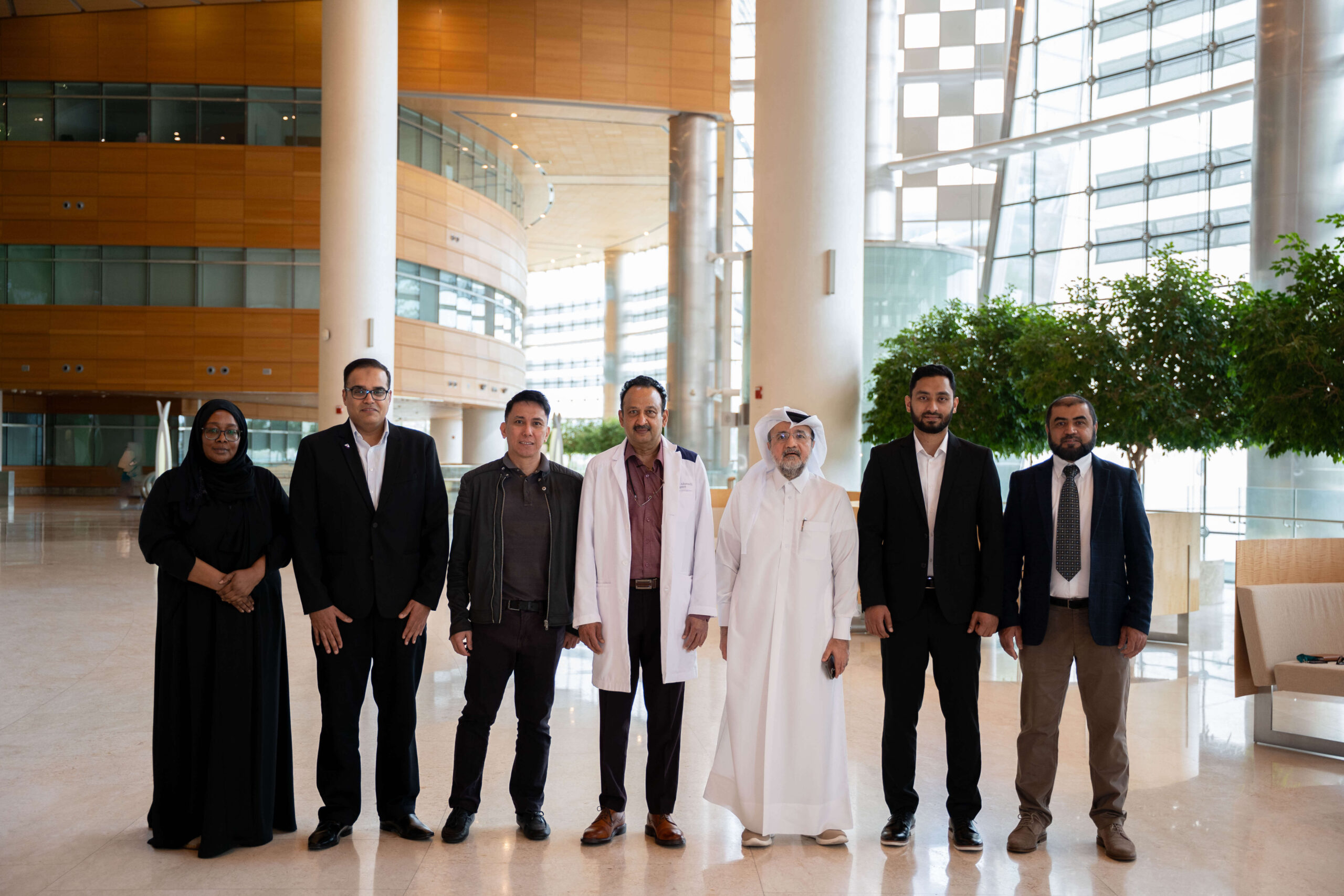Sidra Medicine Study Recognized as Key Advancement in Cancer Microbiome Field

21 January 2024, Doha, Qatar – Sidra Medicine, a member of Qatar Foundation, is proud to announce that one of its research studies published in Nature Medicine in May 2023, has been featured in the Year in Review section of Nature Reviews Gastroenterology & Hepatology, which focuses on key advances in the field of cancer microbiome in 2023.
Titled “Microbiota-based biomarkers and therapeutics for cancer management”, the article provides a comprehensive overview of the latest discoveries and applications of microbiota-based approaches for improving cancer prevention, prognostication, and therapy, with a focus on colorectal cancer.
The research study from Sidra Medicine “An integrated tumor, immune and microbiome atlas of colon cancer” by Roelands et al, revealed the impact of our immune system and microbiota on our ability to survive colon cancer. The study was done in collaboration with Leiden University Medical Center (LUMC) in the Netherlands.
The study comprehensively characterized the genomic, transcriptomic, immunological, and microbial features of a cohort of 348 patients with colorectal cancer, sequenced at Sidra Medicine, with long-term follow-up data to devise a composite score for prognostication.
The Sidra Medicine and LUMC team analyzed various aspects of primary colon cancers, including the characteristics of cancer cells, cancer immune responses, and microbiota composition. They found that a specific composition of bacteria in the tumor and intratumoral immune response were associated with a more favorable prognosis for colon cancer patients.
Dr. Wouter Hendrickx, one of the senior authors of the article and a principal investigator at Sidra Medicine, said: “We are honoured and delighted that our article has been recognized by Nature Reviews Gastroenterology & Hepatology as a key advancement in the field of cancer microbiome. Our article showcases the cutting-edge research that Sidra Medicine is conducting in collaboration with leading institutions such as LUMC. This is a testament to the hard work and dedication of our team and our partners and reflects the high quality and impact of the research coming out of Qatar.”
The Sidra Medicine study highlighted how combining a tumor inflammation score with the microbial signature into a composite score termed mICRoScore, maximized the prognostic performance, in which a mICRoScore-high group corresponded to a subgroup of patients with colorectal cancer with a 97 per cent and five-year overall survival rate.
Dr. Souhaila Al Khodor, head of the Microbiome and Biomarkers Discovery Lab at Sidra Medicine where samples were processed for analysis said: “We showed that a microbiome signature driven by Ruminococcus bromii can predict the survival of patients with colorectal cancer. Knowing that the R. bromii gut levels can be modified holds the promise for improving disease prognosis and potentially changing its outcomes. Establishing the right balance between “good” and “bad” bacteria is not easy but, it could improve treatment outcomes for patients. We believe that “microbiome-based interventions and therapeutics” is an exciting chapter in precision medicine and hope that our study will inspire more research and innovation in this promising area of cancer research.”
Sidra Medicine’s research branch focuses on translational and clinical research that addresses the health priorities and needs of Qatar and the region, such as diabetes, obesity, infectious diseases, genetic disorders, and cancer. Sidra Medicine’s research branch also collaborates with local and international partners to conduct high-impact and innovative research that contributes to the global scientific knowledge and improves human health.
For more details, please visit www.sidra.org.








